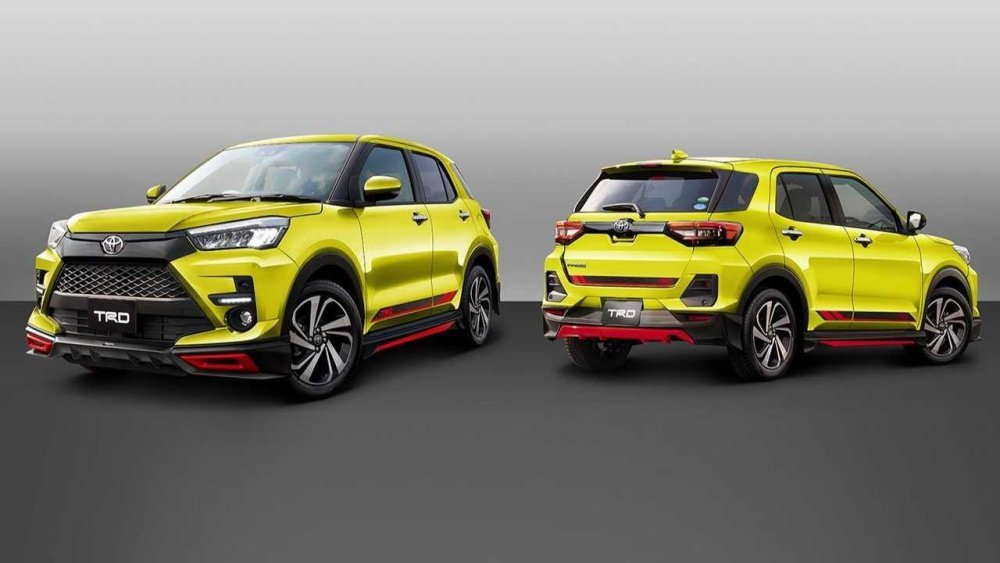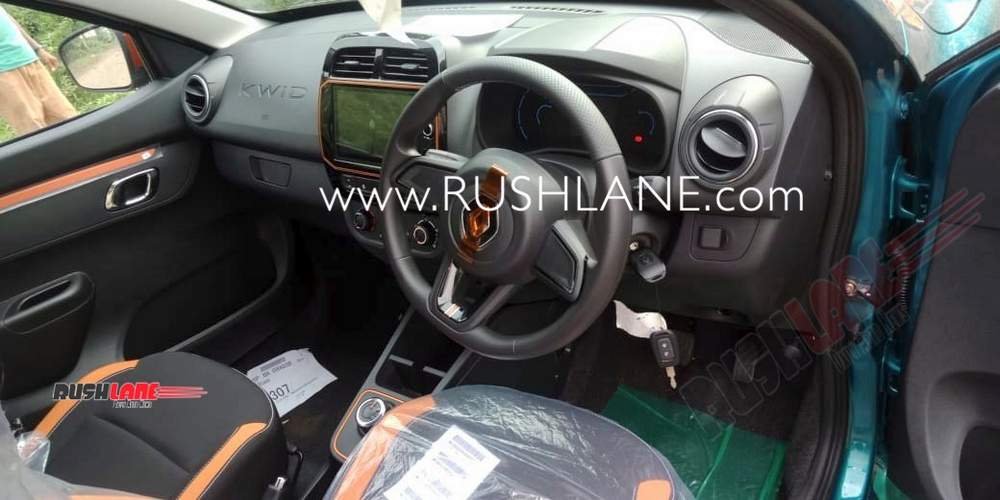
Skyonline
-
Posts
58 -
Joined
-
Last visited
-
Days Won
1
Content Type
Profiles
Forums
Events
Blogs
Gallery
Posts posted by Skyonline
-
-
SKODA to enter Sri Lankan market
After 17 years, ŠKODA is returning to Sri Lanka: In May 2020, ŠKODA is going to open a central showroom and sales location in Colombo, the capital of the island state located off the southern point of India. ŠKODA AUTO will be collaborating with IWS Automobiles (Pvt) Ltd as an importer and trading partner.
ŠKODA’s initial line-up will include four model series: the small car FABIA, the mid-class SUPERB, the large SUV KODIAQ and the compact SUV KAROQ. The brand’s bestseller, the OCTAVIA, will expand the range of models later this year. By utilising the existing synergies in the INDIA 2.0 project, ŠKODA could also offer models in Sri Lanka that will be developed under the upcoming model campaign in the Indian market. Customers can order the first vehicles from the beginning of March 2020, and the first deliveries will be made when the new showroom opens in May.
Consistently internationalizing the company and opening up new markets are central pillars of Strategy 2025, with which ŠKODA AUTO has set the course for sustainable, long-term growth. The strategy also encompasses the central topics of electro-mobility and digitization and creates the prerequisites for transforming ŠKODA AUTO from an automobile manufacturer into a ‘Simply Clever Company for the best mobility solutions’. -
36 minutes ago, Hyaenidae said:
3 friggin mi... you got to be kidding me.
Anyone who even considers to pay 3 million for this abomination should be burned to a crisp before they lay eggs.
Ridiculous pricing will ensure they don’t sell, very disappointed with the launch of this car…
-
I don't think they'll move half of their sales target, since the vehicle priced at Rs.3,050,000/ onwards..
“Console mounted joystick gear lever for stress free gear change with gear shift alerts”
So it’s manual transmission…
-
21 hours ago, Crosswind said:
Has anybody actually driven the Vega or at least seen the Vega being driven?
-
 1
1
-
 1
1
-
-
-
-
Toyota Yaris (Vitz) to replace Prius c (Aqua)
The Toyota Yaris hatch will be available with hybrid power for the first time when it arrives and it will consume less fuel than any other Toyota model.
Toyota announced the first Yaris hybrid will consume just 3.3L/100km, which is less than the Prius (3.4L/100km) and also less than the Prius c hybrid (3.9L/100km), which will be axed by the time the new Yaris arrives.
https://www.motoring.com.au/new-toyota-yaris-to-replace-prius-c-122547/
-
It will be better if vehicle duty is calculated on the cubic capacity (CC) of the engine, be it petrol, diesel or hybrid, this system will be acceptable to all segments of the industry, including the customer.
-
The government has been told to rethink the current tax duty structure on vehicle imports and Luxury Tax, as they have effectively put a lid on vehicle imports in excess of 1,600cc engine capacity.
According to the latest vehicle registrations data analysed by JB Securities, a Colombo-based equities brokerage and a research house, only one new car and four pre-owned cars have been registered with engine capacity in excess of 1,600cc in December.
“Taxes on cars are via an excise duty based on the engine capacity and a Luxury Tax of 60 percent above the value of Rs.4.0 million—an illustration of the need for a rethink of the current policy,” JB Securities Managing Director Murtaza Jafferjee stated in a note.
Last October, the then government revised the Luxury Tax formula on vehicles by resorting to calculate the tax based on the manufacturing cost or the cost, insurance and freight (CIF) value of a vehicle, instead of the previous used method based on the engine capacity.
The new tax move was expected to generate revenue of Rs.48 billion. The revised tax is applied on vehicles registered on or after November 1, 2019.The Luxury Tax on vehicles registered before November 1, 2019, was based on their engine capacity.
Accordingly, pre-November 1, the Luxury Tax was applicable on only three categories of vehicles—petrol vehicles with cylinder capacity more than 1,800cc, diesel vehicles with cylinder capacity of more than 2300cc and electric vehicles with more than 200kw power.
But after November 1, the Luxury Tax became applicable on all petrol and diesel vehicles with a CIF value exceeding Rs.3.5 million. A tax rate of 120 percent is applicable on the amount exceeding the luxury free threshold i.e. Rs.3.5 million.
The Luxury Tax applicable on hybrid petrol vehicles exceeding the CIF value of Rs.4 million is 80 percent and on hybrid diesel vehicles exceeding the CIF value of Rs.4 million is 90 percent.
On electric vehicles with a CIF value exceeding Rs.6 million, a 60 percent Luxury Tax is charged.
At the time the amendment was brought in, the vehicle importers opposed to the move, saying it would hit their sales dearly.-
 1
1
-
-
-
-
-
-
17 hours ago, vag2 said:
is it true CC tax will be relaxed?
petrol: uptp 1800 cc
diesel upto 2300 cc
EV upto 100kW
The tax will no longer be charged on the engine size for vehicles below the capacity of 1,800cc, for petrol, 2,300cc for diesel and a 200 kiloWatt motor will not apply from November 01.
-
Sri Lanka will charge a so-called luxury tax from high value cars and SUVs for which import letter of credit was opened after March 05, 2019 and the basis of engine capacity to charge taxes has been removed, the finance minister said.
The luxury tax will be applicable to petrol and diesel cars and jeeps valued (CIF) over 3.5 million rupees, hybrids over 4.0 million rupees and electric vehicles over 6.0 million rupees.
The tax will no longer be charged on the engine size for vehicles below the capacity of 1,800cc, for petrol, 2,300cc for diesel and a 200 kiloWatt motor will not apply from November 01.
But letters of credit opened up to October 31 and imports cleared before April 21, 2020 will still not be charged the luxury tax.
The finance ministry said cars like Toyota Vitz, Suzuki Every, Toyota Roomy, Suzuki Alto, Suzuki Baleno, Daihatsu Petrol, Honda Grace, Suzuki Wagon R, Toyota Aqua will not be subject to the luxury tax.
Sedans like Toyoa Axio, Premio and Allion will also not attract the luxury tax, the finance ministry said.
https://economynext.com/sri-lanka-luxury-tax-for-high-value-cars-engine-capacity-base-removed-29920/
-
The government has revised the luxury tax (LT) formula and is to introduce a LT based on the vehicle manufacturing cost in addition to custom duty if its manufacturing cost (Cost Insurance Freight/CIF value) exceeds Rs.3.5 million.
Under this new formula, the LT vehicle import duty will be levied on the basis of engine capacity and LT tax on CIF value, informed official sources said.
Revision of excise duty on motor vehicles and implementation of LT on luxury motor vehicles is expected to generate revenue of Rs.48 billion, a senior Treasury official said. The relevant circular on luxury tax amendment will be issued soon, he said.
Earlier the LT on vehicles was based on engine capacity and now it will be changed to CIF value, he said adding that the government has decided to amend the luxury tax on motor vehicles to be based on price instead of engine capacity, specifying the vehicle categories which are exempt.
As per the Finance Act 2018, the LT was applicable earlier on only three categories of vehicles, including petrol vehicles with cylinder capacity more than 1800 cc, diesel vehicles with cylinder capacity more than 2300 cc, and electric vehicles with more than 200kw power.
But now all vehicles with a CIF value of Rs. 3.5 million or over will be subjected to an additional LT, he said.
Vehicle Importers Association of Sri Lanka (VIASL) Chairman Ranjan Peiris said most of the vehicles used by motorists like Toyota Premier, Toyota Axio, Honda Vezel, Toyota CHR and Honda Grace come under the LT bracket.
In accordance with the new tax, Rs. 1.2 million would have to be paid as LT for a vehicle with a 1,000cc engine capacity in addition to the manufacturing cost, he added.
A member of the Ceylon Motor Traders Association said that it’s not fair to charge the same duty for a 2,000 cc Korean-made vehicle produced and purchased for US$20,000 and a European manufactured one with same engine capacity purchased at $35,000, under the earlier taxation system.
Heeding to representations made by motor traders, the Finance Ministry has decided to amend the LT imposition reverting to the previous method of taxation on the price of the model.
-
-
57 minutes ago, LCD said:
@Skyonline I checked the bezza, maybe i'm wrong but it seems like the build quality is not that great in the bezza. Also have heard that it's not that stable on the highway when doing like 90 - 100kmph. One final thing is that i'm not sure whether 1000cc engine makes the car a bit under powered.
If it's is not a one time repair i think it's better to stay away. Thanks for the info guys (Y) -
-
-
Mahindra sets up car assembly plant in Sri Lanka
Mahindra & Mahindra has set up an assembly plant in Colombo, Sri Lanka, as part of its initiative to push more volumes in the international market, at a time when domestic demand has been weak for the past one year.
The Mumbai-based automaker will from Saturday start assembling compact SUV KUV100 at the new plant, with a production capacity of 5,000 units per annum.
In collaboration with Ideal Motors of Sri Lanka, the plant has been built with an investment of over Rs 80 crore. The resultant entity has been christened Mahindra Ideal Lanka. While Ideal Motors will own 65% of the joint venture, M&M will own the remaining.
Pawan Goenka, managing director of M&M, said the company would roll out more products over the next three years from the plant. “This is the first passenger car assembling plant in Sri Lanka. Sri Lanka is a key strategic market for us and we are now fully equipped to deliver products customised to local needs, on time,” Goenka said.
Mahindra Ideal Lanka will localise four components — batteries, tyres, seats and exhaust — to lower down the cost to some extent. Spread over 10 acre, the plant in Sri Lanka will employ around 200 people. It was inaugurated by Sri Lanka PM Ranil Wickremesinghe.
https://www.financialexpress.com/industry/mahindra-sets-up-car-assembly-plant-in-sri-lanka/1678333/
-
-
-
1 hour ago, matroska said:
Discussed in great detail over the last year or so so many times I just can't type the same thing anymore
for example
there are just so many .... please do a thorough search there's enough content there for you.
Thanks













.thumb.jpg.8fcbdfc466e6b4acace15271a9656220.jpg)
























SKODA to enter Sri Lankan market
in General Automotive
Posted